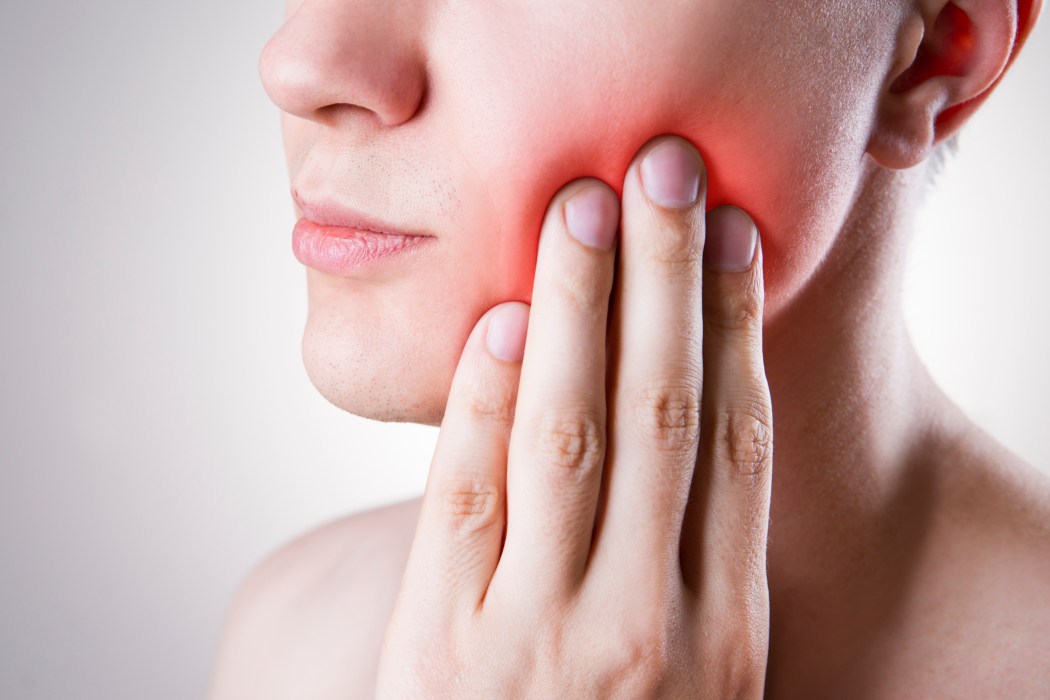Methods for At-Home Pulpitis Pain Relief
How to Treat Pulpitis at Home
Pulpitis is an inflammation of your dental pulp due to infection, trauma, deep dental cavities, bruxism, or extensive dental work. The symptoms include pain, tooth sensitivity, trouble speaking and eating, swelling and inflammation of the gums, and red gums. Pulpitis will not resolve on its own, and requires professional diagnosis and treatment. While you wait for your dentist appointment, you can treat and relieve your symptoms at home. Here is your guide on how to treat pulpitis at home, at-home pulpitis pain relief, and recognizing the signs you need to visit your dentist for emergency dental care.

Take Over-the-Counter Pain Relievers
An over-the-counter painkiller like ibuprofen, naproxen sodium, or Tylenol can reduce pain and swelling. You can also use a topical medication like a gel or spray that is designed to numb the gums temporarily.
Use a Warm Salt Water Rinse
A warm salt water rinse can temporarily relieve pain and clean the infected tooth or gums. Mix half a teaspoon of salt with a cup of warm water and swish it around in your mouth for 30 seconds. Repeat this every few hours.
Apply Cold Compresses
An ice pack, cold compress, or bag of frozen vegetables can relieve pain and swelling. Apply ice for 10-15 minutes at a time, protecting your skin with a clean towel between the ice and your skin. Wait 15-20 minutes, and then reapply ice. Repeat for several hours or until the pain has gone away.
Elevate Your Head
Keeping your head elevated can improve blood flow and reduce pain and swelling. You should prop your head up with pillows while you sleep or while lying down.
Eat Soft Foods
Eating hard foods may further aggravate your teeth and gums and worsen your symptoms. Avoid eating and drinking very hot or cold foods and beverages. Do not chew ice or hard or crunchy foods. Do not use your teeth to open packages or chew on pens or other objects. Do not brush or floss aggressively. Eating soft foods like pudding, yogurt, rice, mashed potatoes, and applesauce can relieve pain and discomfort.
Warning Signs You Should Visit a Dentist
Pulpitis cannot be treated at home long-term and can cause major oral and overall health problems if ignored. You must visit a dentist as soon as possible for long-term treatment of the underlying issue causing your symptoms. If you notice any of these symptoms, you should visit your dentist for emergency dental care and treatment:
- Intense or worsening tooth or gum pain
- Spontaneous pain that recurs despite home treatment
- Sensitivity to heat and cold that lasts more than 30 seconds
- Pain when your tooth is tapped or when you apply pressure
- Swelling around your teeth and gums
- Bad breath or pus or discharge from the tooth or gums
- Visible damage to your tooth, such as a crack or chip
- Radiating pain
- Fever
- Facial swelling
- Signs of periodontal disease, such as red or bleeding gums, gum or tooth pain or sensitivity, receding gums, or loose teeth
How Is Pulpitis Treated?
Pulpitis can be caused by a cavity, and filling the cavity can relieve your symptoms. It can also be caused by clenching or grinding your teeth at night, which can be treated by using a night mouthguard. In some cases, pulpitis may be due to severe tooth decay, a large dental cavity, or a very damaged tooth. Your dentist may recommend root canal therapy if your cavity is too large for a filling or your infection is severe. During a root canal, your dentist will remove all infected pulp and clean and sanitize your tooth. They will then fill the cavity and place a dental crown. If the issue is too severe for a root canal, your dentist will recommend a tooth extraction and dental restoration.
Can You Prevent Pulpitis?
You may be able to prevent pulpitis by practicing good oral hygiene. You should brush twice per day and floss at least once per day. You should use a fluoridated toothpaste or mouth rinse, or one designed for tartar and cavity prevention. Follow a healthy diet and drink plenty of water. Quit smoking and using nicotine products, and avoid excessive alcohol use. You should also visit your dentist every six months for a dental exam and professional teeth cleaning. Practicing good oral hygiene and scheduling regular dental visits can reduce your risk of tooth decay, dental cavities, infections, gingivitis, and gum disease. If you notice any troubling symptoms, schedule an appointment with your dentist right away.
Call Xpress Dental if You Have Severe Tooth Pain
At Xpress Dental, we have a team of experienced dental professionals dedicated to protecting the health and beauty of your smile. If you have new or worsening tooth pulp pain or gum pain, we can determine the underlying cause and recommend a safe, effective treatment option. Our dental services include periodontal disease treatment, laser gum treatment, night guards for bruxism, tooth extractions, and root canal therapy. Call us now or contact us online to make an appointment for treatment of tooth pain or pulpitis in McAllen, TX.
